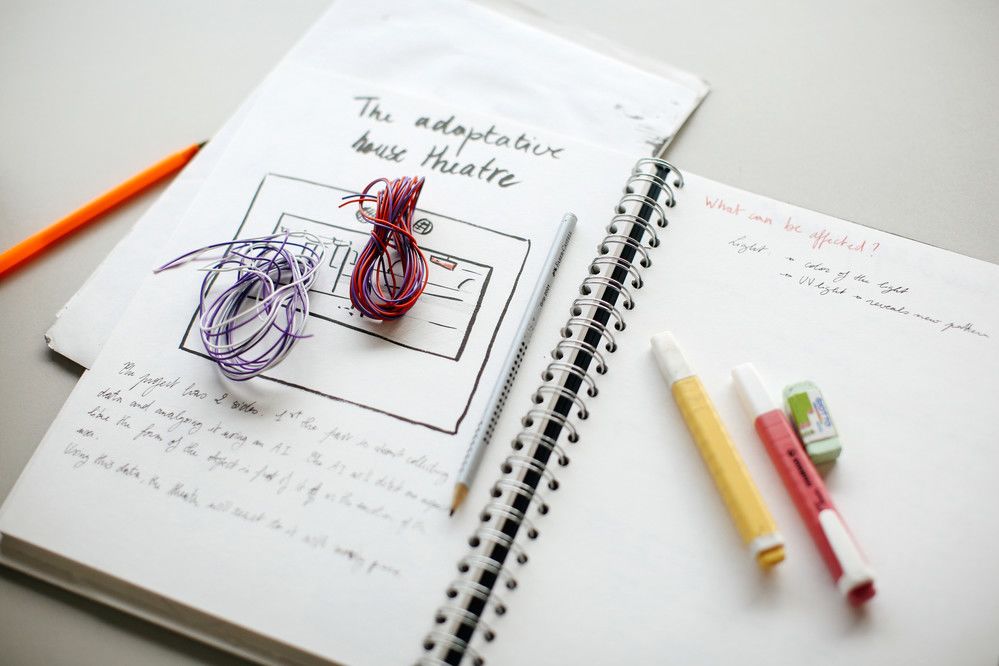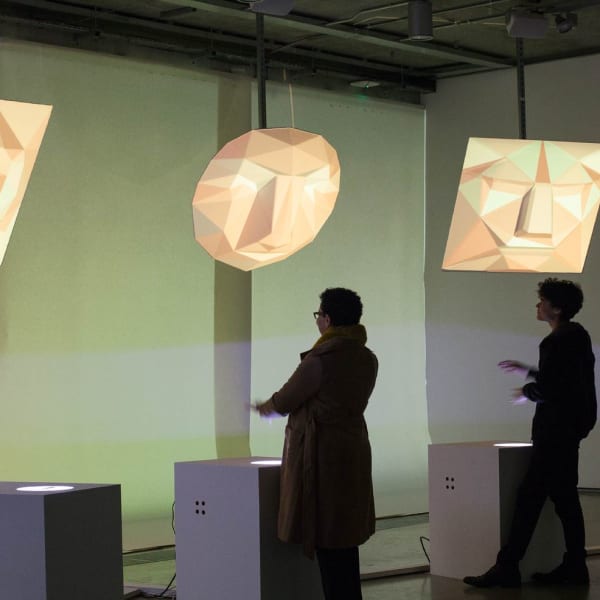
Discover how design interacts with systems theory

- Written byCarys Thomas
- Published date 22 May 2023

Led by Dr Rosie Hornbuckle, our Introduction to Design with Systems Online Short Course considers how design interacts with systems theory.
During the course, students learn how to develop a systems mindset in their own work where they can identify, represent and critically engage with system elements.
To find out more about what students can expect from the course, we caught up with former student Suzanne Goff. Suzanne tells us about her interest in systemic design and discusses its many applications.
Read more about our service design and design thinking short courses.
Suzanne, who previously worked as a Community Engagement Lead at Cambridge Council for Voluntary Service (CCVS), came to UAL Short Courses to build her knowledge of systems thinking.
“I came to the course with quite an open mind,” says Suzanne, “I wanted to improve my level of understanding, awareness and knowledge.”
Suzanne previously worked in the voluntary and public sector. “I’ve worked in corporate strategy at two local authorities,” she tells us, “so I’ve always been interested in how to run projects and engage communities. That’s part of the reason why systems thinking and design is interesting to me.”
Exploring systems theory
On the Introduction to Design with Systems Short Course, students explore how to map and engage with systems and their varied elements. The course looks at participatory design practices, co-design methods, inclusivity and ethics.
“I really appreciated that the course gave me a wide understanding of the different areas of thought around systems thinking and systems design,” says Suzanne. “I was familiar with some aspects of systems thinking but there were other areas that I’d never come across, so it was really important and useful to further my knowledge.”
Students on the course complete a series of practical tasks to expand their knowledge and develop their systems literacy. For Suzanne, these tasks were useful in exploring the role of systems thinking within design practice.
“I didn’t realise how effective systems design thinking could be,” she says. “The course has made me think about how I can use this framework in a really practical way.”
Community engagement
In her most recent role, Suzanne was part of a partnership with Cambridge City Council and local voluntary sector organisations. Together, they designed and delivered a government funded programme to support access to the COVID-19 vaccine for people who wanted the vaccination but experienced barriers to healthcare.
“Our task was to conduct research and work collaboratively to design practical ways to address those barriers,” says Suzanne. “Our research showed that reasons for low uptake were often practical, for example, transport or childcare, or emotional, like needle phobia or social anxiety.”
Suzanne wanted to explore whether she could apply some of practices and theories related to systems thinking in the development of the vaccine programme. “I felt that this way of way of thinking could help us unpick some of the things that we might miss with other methods,” she explains.

The course had a big influence on the way that the programme was codesigned and inspired Suzanne to adopt a more creative approach. “We worked with voluntary sector organisations to deliver vaccine support and engagement in a way that felt safer and easier for local people,” says Suzanne. “For example, we ran vaccination clinics in libraries and community centres.”
“Through our systems thinking, we realised that many people just needed to have a safe space to talk about their COVID-19 experiences,” she explains, “so we worked with local artists to listen to and record people's memories as part of a time capsule, as well as offering vaccine support. This encouraged open communication and trust. It was easier to have difficult conversations by using creativity to help people express themselves. We learnt so much more this way.”
“We’re now in a much stronger position should we need to design something like this again,” says Suzanne. “We’re able to work much more creatively with our partners using digital technology and art, as well as support the amazing work that the local voluntary sector does already to talk to different communities in ways that work for them."

Making connections
The Introduction to Design with Systems Short Course attracts a wide range of students from different backgrounds and industries. The course is for beginners and students don't need to have any prior knowledge of systems thinking.
Students may be designers or creatives with an interest in pursuing a systems-based approach or civil servants looking to bring design approaches into their work, for example.
“There was a fantastic mix of students on the course,” says tutor Rosie Hornbuckle. “It was really satisfying to see the diverse contexts that systems thinking could be applied to.”
Suzanne also enjoyed building connections with other students. “Everyone presented their work during the sessions,” she says, “so I got to hear about their particular approaches and ideas. I learnt so much from listening to others' experiences and was inspired to try new things out.”
Starting conversations
Since finishing the course, Suzanne has been looking at ways to incorporate her learning into various projects at work. She has already put into practice some of the tools and frameworks covered on the course.
“I’ve incorporated what I learnt from the course with some community engagement training,” she says. “The council has been using some of the programme's ideas to talk to community groups who have been impacted by the cost-of-living crisis, for example. We can reuse this idea of systems to talk to people in a very broad and creative way to develop trust and understanding.”
In addition to the vaccine programme Suzanne worked on, the Cambs Youth Panel also designed a vaccination Minecraft exhibition as a safe space for young people to find out more about vaccinations. The panel conducted their own research into attitudes towards vaccinations which was used to inform colleagues working in health.
“For me, the course has been quite transformative,” Suzanne tells us. “The way of working has sparked conversations about co-designing with communities and strengthening relationships. Utilising systems thinking has changed how we think and work.”
Suzanne would recommend the course to anyone with an interest in the area. “Taking a short course is a really helpful way to step out of your day-to-day job and give yourself a bit of time to reflect on your processes and way of thinking,” she says.
Credits: Images from the Cambridge Vaccine Access Programme, funded by the Department of Levelling Up, Housing and Communities and locally delivered by Cambridge Council for Voluntary Service, Cambridge City Council, Cambridge Ethnic Community Forum, the Museum of Cambridge, Collusion, Cambs Youth Panel, Cambridge Online, Rowan, and community artists, Rachel Vollerthun and Hilary Cox Condron.
Read more about this partnership or contact the Voluntary and Community Sector Community Engagement Lead, Suzanne Goff, via LinkedIn. Images not for reuse.
Feeling inspired? Discover 5 reasons to take the Introduction to Design with Systems Online Short Course.
At UAL Short Courses, we offer a huge range of short courses for all levels of experience. Check out our upcoming short courses to find out what's coming up.
